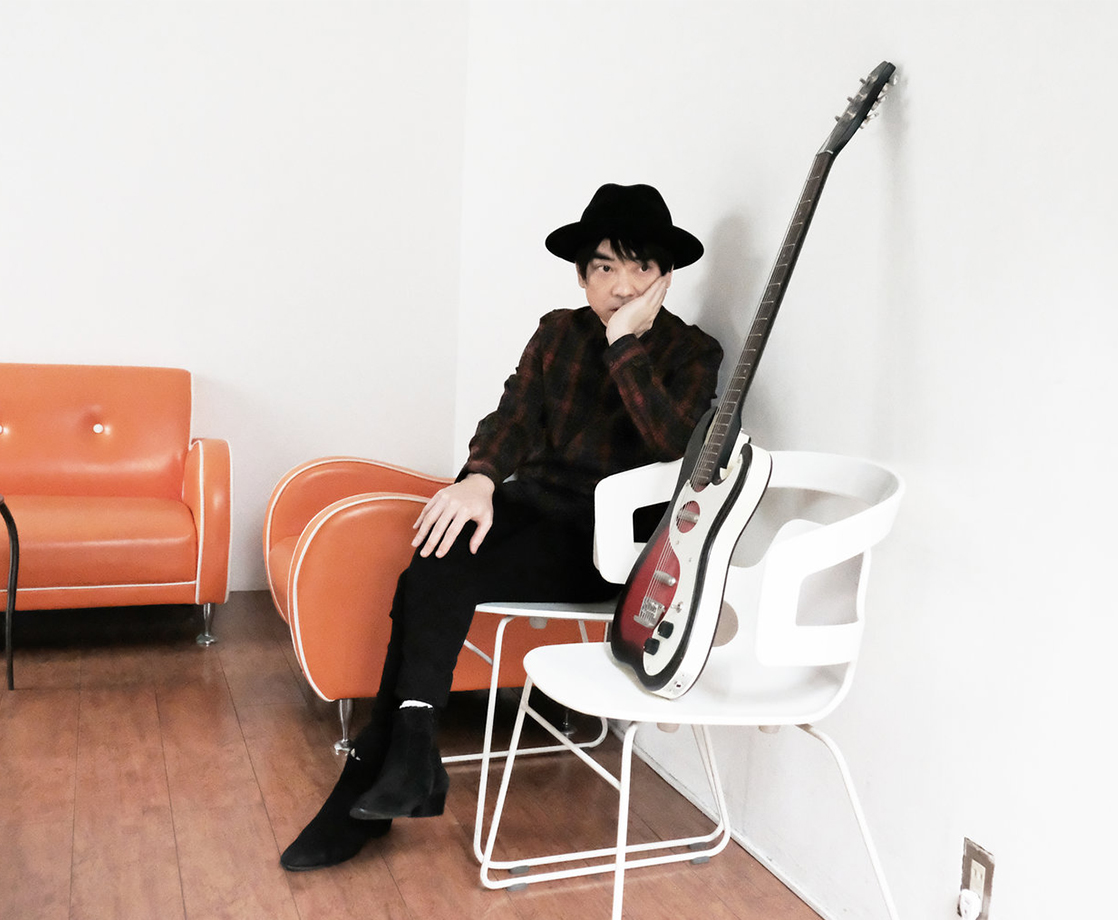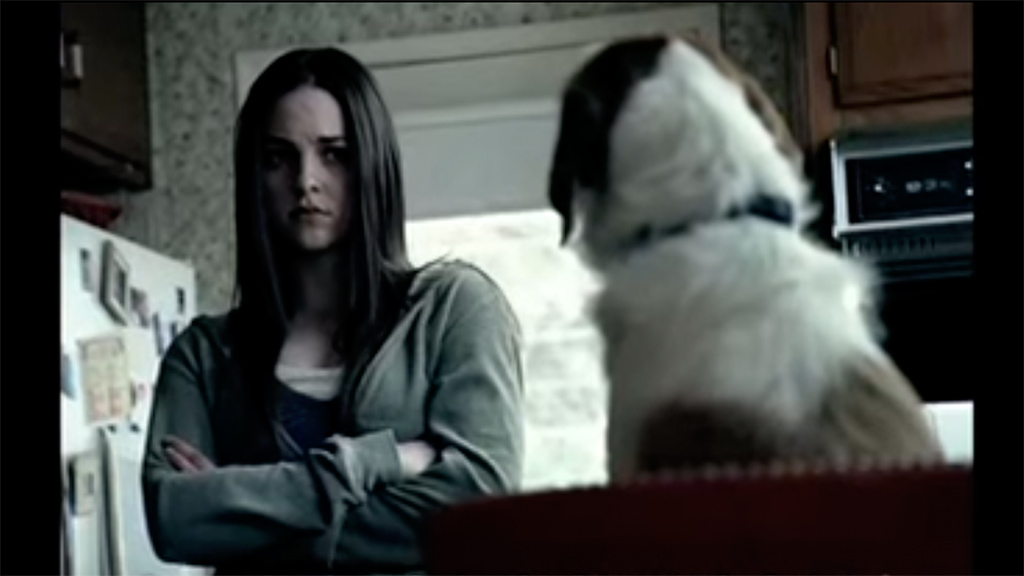Photos by Masayoshi Sukita, courtesy of the artist and Rostrum Records
Until last year, the world hadn’t heard from Cornelius in about a decade. The Japanese music icon’s landmark 1997 album Fantasma was reissued, and everyone was reminded that the swirling epic of psychedelic, cut-and-paste compositions fit perfectly alongside the late 20th century pantheon of eclectic pop music — Paul’s Boutique, Odelay, Since I Left You, etc. Though he was already a mainstay in Japan, Cornelius was catapulted into international recognition in the late ‘90s, subsequently doing remix work for artists such as Blur, Beck, and MGMT. Last year’s reissue brought with it a new wave of enthusiasm, as Cornelius performed the album in full for a string of dates in the US (including one at Justin Vernon’s Eaux Claires Festival).
With his next albums, 2001’s Point and 2006’s Sensuous, Cornelius (real name Keigo Oyomada) toned down his approach, focusing on mood and texture more than the head-spinning element of surprise that defined his early work. Found sounds from nature, as well as other ambient textures, made their way into the mix, somewhat maturing his sound while still keeping it firmly within an experimental realm. Mellow Waves (out last month in Japan and internationally this Friday), his first album in eleven years, occupies a similarly tranquil space.
Watery synth tones, fluid drumming, and rippling guitars fuel this mostly-solo effort, reminding us of Cornelius’ multi-instrumental gifts, as well as his knack for hyper-specific sound design. He may no longer be working within Shibuya-kei, the Japanese genre defined by stylistic fusion and pop culture-mashing that he’s often credited with pioneering, but even when honing in on a vibe and mood as focused as the meditative, billowy Mellow Waves, Cornelius can’t erase his identity as one music’s most adventurous minds. One second, we’re careening through mathy guitar pop reminiscent of fellow Tokyo residents Toe on “Somewhere / Someplace,” the next, we’re in the midst of “Surfing on Mind Wave Pt. 2”’s six minutes of blissful ambience. By the album’s end, you’ll have heard soaring pop choruses, robot-voiced grooves, samba rhythms, and some of the finest acoustic guitar/synth pairings in recent memory.
20 years removed from his big break and ten from his last exploits as Cornelius, Oyomada is in a reflective, inspired mood. He never really stopped working, adding new, wildly varied feathers to his cap in the interim between albums, but something about Fantasma’s reissue reawakened a dormant giant of Japanese alternative culture. Now 48, Oyomada finds that his solo music takes its inspiration from much different sources than before, and that he muses on entirely different themes. Not that Cornelius needed anything to make it a more eclectic project, but putting a decade between albums is usually a great way to broaden the scope of an artist’s vision.
MERRY JANE caught up with Keigo Oyomada to discuss his time away from the Cornelius moniker, the inspirations behind his new album, and the rapidly-changing methods of musical discovery available to youth. With the help of a translator, Oyomada relayed his answers over Skype.
MERRY JANE: It’s been quite a while since the last Cornelius album. What have you been up to in the past eleven years?
Cornelius: Well there's been a lot that's gone on since that time. I was a member of the Yellow Magic Orchestra. I was with Yoko Ono's Plastic Ono Band as a member of an album and tour. I did production work for a Japanese singer called Salyu x Salyu. I do the soundscape and sound design of a kids' program called Design Ah! I've done soundtrack work for the Ghost in the Shell: Arise TV series. I’ve done a few things with [Japanese supergroup] Metafive — the list goes on and on.
Did you feel like you needed to take a break from the Cornelius project, or did other interests just begin take precedent?
After the last Cornelius album, I spent two or three years touring, and I knew that I wanted to do something kind of different before going right into recording another album. I just sort of started doing other projects that people had thrown my way or asked if I'd be interested in, and one interest led to another. I just kept doing these projects that came my way, and before I knew it, ten years had gone by.
Last year you reissued Fantasma. What factored into that decision? Was it just the proximity to its 20 year anniversary, or did you sense that there was a renewed interest in it?
A label asked if they could release a remaster. But then when that thought came up, I kind of realized that 20 years had gone by, and that was a bit of an instrumental moment, really. I was very impressed to find that there was a younger generation of kids listening to my music — that was very gratifying. I imagine that things like YouTube allowed people to dig things like this up and discover them anew.
What inspired you to get back into the studio for the new album?
These are songs that I've actually been writing since about 2012, so there was quite a stock of music to begin with. But it was just timing that came together late last year, and I was able to sit down and actually sort through it as an album.
What factors went into that sorting process?
I write a lot of material, and I've found that the more songs I pile up on, when I reflect and listen back to it, there seems to be some sort of thematic thread that starts to appear, and I start to be able to pick up on something that you'd be able to call a concept. In this case, I reflected and found that a lot of the songs literally were mellow and had this wavy feel to them, and that's where the title came from
Oh, I didn't expect the title to be so literal.
Yes! [Laughs]
What happens to material you’ve written that didn’t end up on this album? Do you tend to throw the extra stuff away or set it aside for later, reflect back on it, and make that the basis for another album?
It really is the stock of songs that don't get into the theme of this album that go to the other projects. A lot of the other songs end up shifting to Metafive, or some of the other songs go off to Salyu x Salyu. Depending on the type and tempo of the song, they go off in different directions. There are still a bunch of songs that haven't found their home.
It seems like you organize projects according to distinctive sounds, but lyrically, are there any overarching themes on Mellow Waves?
There's definitely more of a collage element to my last couple of albums, in terms of wording, where words themselves are strictly used in a voice texture type way. It's definitely more of a cut-up word collage sound. This one is very melody-oriented, and when you have a melody-oriented song, you tend to have complete lines of lyrics that piece together to form meaning, so there's much more of a story to this album because through those melody lines, when you add the lyrics in, they come across to tell a story or an emotion.
"Dear Future Person," for example, is about myself not being in this world anymore. I've passed on, but somebody's in my room reading a letter I wrote. So it's a look at what someone would be seeing or feeling or reading or hearing about myself after I've passed. It's a dreamy state — an obscure, post-life look that I can somehow relate to people that buy secondhand records and dig in record shops.
So does that theme of mortality or postmortem reflection carry on throughout the album?
Definitely mortality, definitely something to do with life and death. In the past few years, the deaths of Prince or David Bowie or George Michael, these musical heroes that I had growing up, as well as people in my everyday life passing away — these are opportunities to reflect on life, and these opportunities become more and more frequent the older you get.
I know it's varied in the past, but for Mellow Waves did you work with many other musicians?
Collaboration-wise, a few others wrote lyrics, including Miki Berenyi from the band Lush, who also sang on one track. But otherwise, Mellow Waves is all me.
You mentioned that the album was deliberately constructed out of work that you felt was stylistically similar. But compared to albums by other artists, the record is still rather eclectic, which has been your M.O. from day one. Is that a mission of yours, or just the way things work out when you sit down to write music?
The way I listen to music, the influences I have, what inspires me, is very eclectic, so it's quite natural for me to have an eclectic expression of that. I feel that it doesn't necessarily all channel into my own Cornelius music in the same way, because that's also why I do so many different projects. It's a lot of different types of expression, a lot of ways I can express this eclectic taste. But yes, I can relate to what you're saying.
That eclecticism is what seemed to initially attract a lot of people to you, and that was before the MP3, music-sharing era. Considering the more recent phenomenon of mashups and the increased accessibility of music, do you feel like today it's easier to do what you do?
My generation was very CD-oriented, which allowed us to go to record stores and buy music that was released in the '50s, '60s, '70s, etc. — it was all there, old and new music to be lined up on the same shelf, which is just a different take, really, on MP3 culture. Nowadays, you have Spotify and whatnot, but I still feel that it's partly the same process. It has to take somebody who's interested, who's inspired, who's intrigued by a certain type of music to explore it. In that sense, things haven't changed — you still have to have that exploring nature to get to where you're looking that hard and incorporating those influences.
This eclecticism was kind of the essence of what was eventually coined "Shibuya-kei," a genre you’re often credited with creating. Looking back, how do you feel about that genre tag?
It's definitely a term from the past, and one that the press, not musicians, coined. But it was true that [the Tokyo neighborhood] Shibuya had a lot of record stores at the time, and ones with cool selections of international music. That was easily at our disposal, and as a generation who would listen to and be inspired by that music, and perform music that was inspired by it, we were called "Shibuya-kei," which is really the logistical explanation behind it.

Photos by Masayoshi Sukita, courtesy of the artist and Rostrum Records
How have your intentions with your music changed since the 1990s, when you first debuted your Cornelius project?
In the general sense, music-wise, what I've been doing is the same, but one angle would be that at the time I was making my first types of music, I didn't know that I'd be doing music for the rest of my life. There was some point along the way, maybe at Fantasma, where my mentality towards making music started to slightly change, it became something that was much more instrumental as a lifestyle. The music was also much more domestic-oriented back then, whereas after Fantasma, I had a much wider variety of listeners throughout the world. That changed aspects of it, definitely.
When you were starting out, did being an alternative musician not seem like a viable career in Japan? And now that you've gained a more international following, how have you seen the local scene change in the years since then?
More than anything, career-wise, I hadn't been satisfied with any of my own work to the degree that I was with Fantasma. It was really a turning point for me in that sense. Comparing back then to now, it's difficult to do, but one thing that's apparent is that record sales, and more largely, the economy in Japan, were thriving back then, and as far as the record market goes, it was the best that it ever has been or will be. So that's a big change, but there's still plenty of great music and cool scenes to be found here in Japan.
Purchase “Mellow Waves” on Cornelius’ official website.
Follow Patrick Lyons on Twitter.











